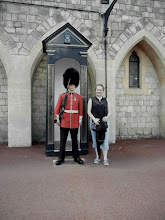This book focuses on Circe, daughter of the god Helios. At first, Circe lives a fairly unremarkable life. No one in her family is particularly fond of her, they see her as plain and ordinary among the other immortals in her life. All of that changes, however, when she discovers she's a witch. Fearful of her power, and as a punishment for turning Scylla into a monster, Zeus banishes her to the island of Aiaia.
Once on Aiaia, Circe hones in on her witchcraft abilities. This is probably where most people know her, especially if you read The Odyssey in high school. Banished to her island, Circe amuses herself by turning men into pigs and keeping them prisoner on her island to keep her company with the other animals around her.
Throughout her life, Circe finds herself drawn back into the world of the immortals, including an encounter with the Minotaur, dealing with gods such as Hermes and Athena and meeting famous Greeks like Daedalus and Odysseus.
I always thought I had a pretty good understanding of Greek mythology, but, after reading this book, that's definitely not the case. It's far more complicated. Thankfully, Madeline Miller includes a list of characters, but, unfortunately, it's in the very back of the book, so I didn't realize it was there until I was done reading. It definitely would have been nice to know about as I read the book.
I wish I could explain why I didn't like this book, but I can't. I didn't think it was awful, but it wasn't as amazing as other people were saying either; I thought it was alright. Miller definitely did her research, which was impressive, but the book just didn't grab my attention. I have to admit that fantasy isn't really my thing, and I only dabble a little bit in ancient history books, so it was a little outside my comfort zone, but it's not the type of book I would normally bypass completely. Other people absolutely love the book, and it definitely had some good moments, so if you like Greek mythology, you might enjoy it more than I did.
Now, I don't really have a lot to say about this book or anything that will really be spoilers. Some of my discussion questions, however, definitely have spoilers, so if you haven't read the book or want to avoid spoilers, this is where you should probably stop reading.
Even though I wasn't particularly fond of the book, I did write some book club questions. If you're looking for something unique to read for book club, this would be a good book to read.
- How did Circe's treatment as an outcast shape her personality?
- Did the fact that the gods are immortal cause their hedonistic lifestyle?
- How did the fact that the gods didn't understand pain, suffering or death lead to problems?
- Did Circe's neglect lead to her interest in mortals?
- Do you agree with Circe's decision to turn Glaucus?
- Do you agree with Aeetes that Circe's attempt to punish Scylla backfired?
- Given how she was treated, was Circe's exile really a punishment?
- Did witchcraft or exile have a bigger impact on Circe?
- Daedalus says to Circe, "a golden cage is still a cage?" (143). Was Circe in a golden cage?
- Why didn't power go to Circe's head like it did her siblings?
- Could Circe be considered a feminist?
- How did the fact that she's a woman create problems for Circe?
- Was Circe as ruthless as her siblings?
- Did Circe not tell Odysseus about her past because she ashamed?
- Do you blame Telegonus for wanting to leave?
- Circe said endurance had always been her virtue. Do you agree?
- Circe tells Telemachus, "You are not your blood" (308). Could she follow the same advice?
- Circe equates the gods to children "clapping their hands and shouting for more" instead of the parents they pretend to be (328). Is this an accurate observation?
- Do you agree with Telemachus' decision to turn down Athena and choose a life of obscurity?
- Why was it easier for Circe to tell Telemachus about her past than Telegonus?
- Odysseus said to Penelope about Circe that "he had never met a god who enjoyed their divity less" (380). Is this an accurate observation?
- Does Circe's decision to become mortal surprise you?












0 comments:
Post a Comment